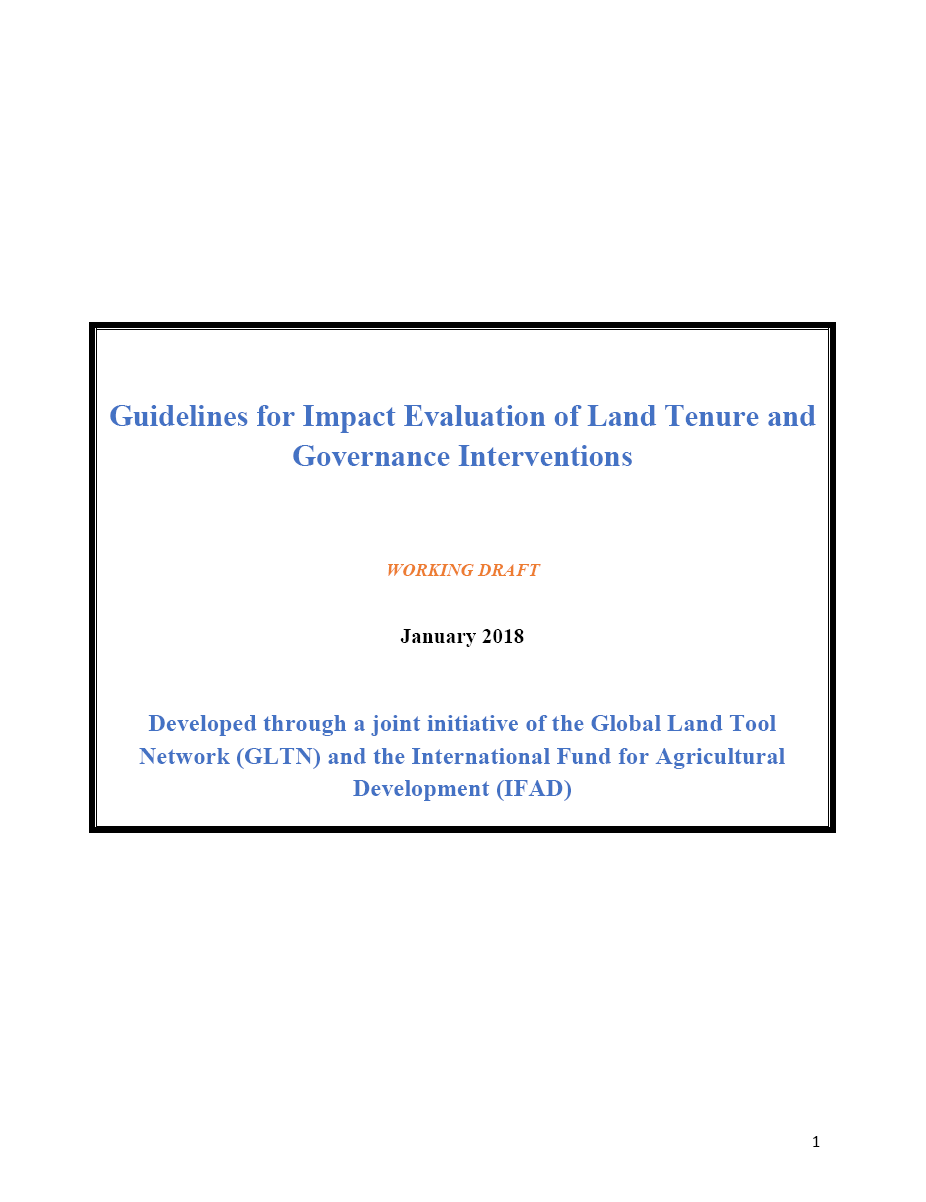Guidelines for Impact Evaluation of Land Tenure and Governance Interventions
The purpose of the Guidelines for Impact Evaluation of Land Tenure and Governance Interventions (“the guidelines”) is to serve as a tool for both researchers and land sector experts in the design and conducting of land impact evaluations and ultimately broaden the evidence of what works and does not work and why in regard to measures meant to improve land tenure and governance.


